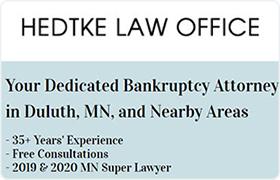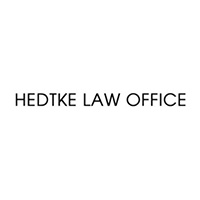Winton Collection Lawyer, Minnesota
Sponsored Law Firm
-
 x
x

Click For More Info:
-
Hedtke Law Office
1217 E. 1St Street Duluth, MN 55805» view mapBankruptcy & Debt Sensible Debt Solutions
Hedtke Law Office is here to answer your questions and guide you through the bankruptcy process. We work to help you reduce your debt while keeping your personal property.
800-887-8940
Not enough matches for Winton Collection lawyer.
Below are all Winton lawyers.
Richard Clive Swenson
Estate Planning, Elder Law, Corporate, Products Liability
Status: In Good Standing *Status is reviewed annually. For latest information visit here Licensed: 38 Years
Rae R Bentz
Landlord-Tenant, Traffic, Wills & Probate, Divorce, Family Law
Status: In Good Standing *Status is reviewed annually. For latest information visit here
Kelly Klun
Construction, Estate Planning, Elder Law, Business, Education
Status: In Good Standing *Status is reviewed annually. For latest information visit here
Angela Christine Von Lehe
Commercial Real Estate, Litigation, Arbitration
Status: In Good Standing *Status is reviewed annually. For latest information visit here Licensed: 15 Years
Gary Edward Kovall
General Practice
Status: In Good Standing *Status is reviewed annually. For latest information visit here Licensed: 52 Years
Amber Darlene Pederson
Other, Divorce & Family Law, Business, Wills & Probate
Status: In Good Standing *Status is reviewed annually. For latest information visit here Licensed: 19 Years
J. Fletcher Freeman
Gift Taxation, Tax
Status: In Good Standing *Status is reviewed annually. For latest information visit here Licensed: 52 Years
John Fletcher Freeman
General Practice
Status: In Good Standing *Status is reviewed annually. For latest information visit here Licensed: 25 Years
Stephen Michael Cersine
General Practice
Status: In Good Standing *Status is reviewed annually. For latest information visit here Licensed: 17 Years
Jason Steven Zabokrtsky
General Practice
 John Hedtke Duluth, MN
John Hedtke Duluth, MN Practice AreasExpertise
Practice AreasExpertise